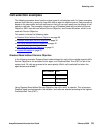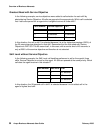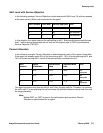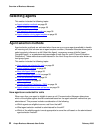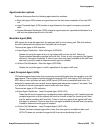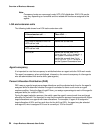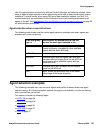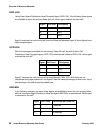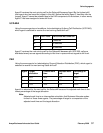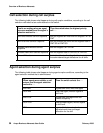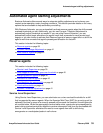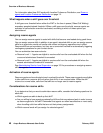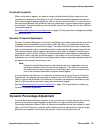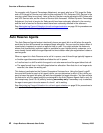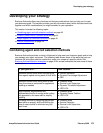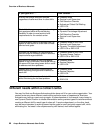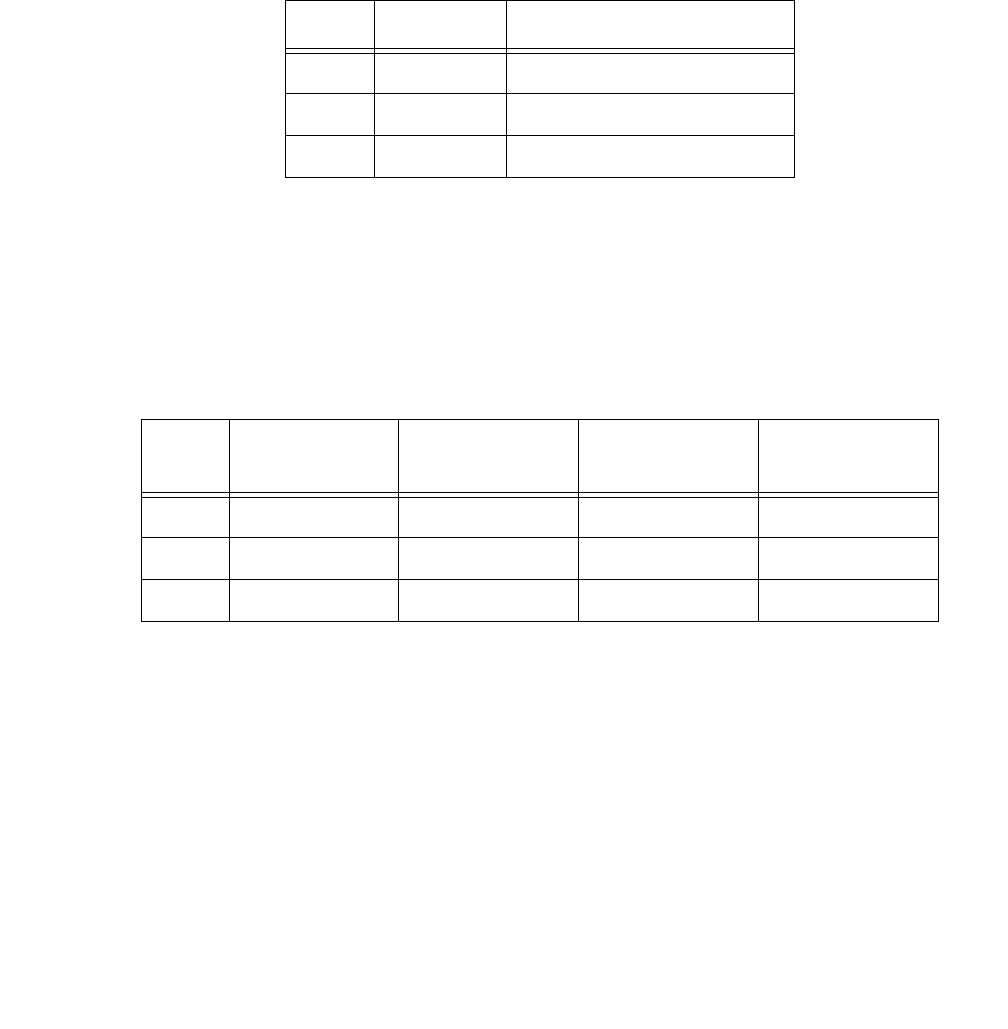
Selecting agents
Avaya Business Advocate User Guide February 2006
37
Agent B receives the next arriving call for the Sales skill because Agent Bis the highest skill
level agent who has been idle longest in this skill. Notice that while Agent C has been idle the
longest, Agent C cannot be selected due to the EAD component of the decision; in other words,
Agent C has been assigned a lower skill level.
UCD-MIA
Using the same agents and conditions, but administering Uniform Call Distribution (UCD-MIA),
which agent is selected to receive the next arriving Sales skill call?
Agent C receives the next arriving call for the Sales skill because with UCD-MIA; calls are
distributed evenly across agents according to idle time in queue without regard to skill level.
PAD
Using the same agents, but administering Percent Allocation Distribution (PAD), which agent is
selected to receive the next arriving Sales skill call?
Agent B is selected for the next call for the Sales skill because his adjusted work time is the
lowest percentage of the target allocation.
Note:
Note: Adjusted work time is an intermediate calculation that Business Advocate makes
for each of these three agents. The percentage of target is a comparison of the
adjusted work time and the target allocation.
Agent Skill Level Time since last Sales call
A 1 5 seconds
B 1 10 seconds
C 2 30 seconds
Agent Target
allocation
Current work
time
Adjusted work
time
Percentage of
target
A 25% 30% 35% 140%
B 50% 45% 49% 98%
C 75% 76% 78% 103%



